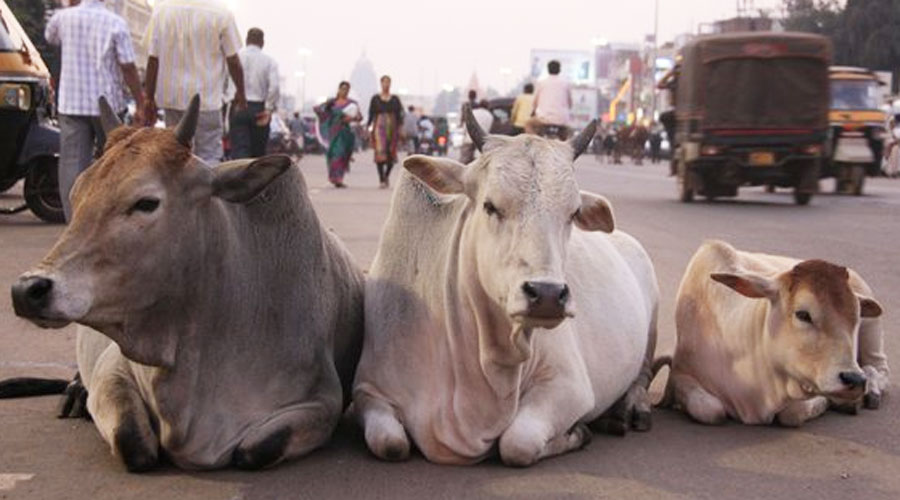Two neighbouring states ruled by the BJP are in a beef conundrum, with one trying to ensure fresh supplies for the festive season while the other pulling all stops to curtail cattle slaughter and illegal transport of the animals.
While Goa doesn’t dare to plug supplies to beef consumers in the state, Karnataka is set to tighten control with its new bill that would severely restrict cattle slaughter and availability of the meat.
Goa chief minister Pramod Sawant had earlier this month assured meat traders in his state, who wrote to him about the crisis caused by the stoppage of supplies from Karnataka, that arrangements were being made to sort out the issue.
But the state government is determined to notify the Karnataka Prevention of Slaughter and Preservation of Cattle Bill, 2020, which prohibits slaughter of any cattle, even if it means taking the ordinance route. After clearing the Assembly, the bill was recently stalled in the Legislative Council where the BJP doesn’t have majority.
Former Goa chief minister Churchill Alemao told The Telegraph on December 18 that he had told Sawant to find a solution by getting fresh stocks of cattle.
“It’s a very difficult situation as beef shortage has led to the closure of lots of shops. I have requested the chief minister to do everything to ensure adequate supplies since this is the festive season and beef is a staple for us,” Alemao said.
Asked how his state would manage with the supply of slaughter animals from Karnataka thinning, Alemao said: “Do you think only Karnataka has cattle? We can source from Maharashtra.”
Commissioner in Karnataka’s department of animal husbandry and veterinary services, H. Basavarajendra, told this newspaper that he had no idea about the beef shortage in neighbouring Goa.
“We have not received any request from Goa. Even if we do, we don’t have a beef market ready to cater to the needs of any state,” said the official.
A major supplier of slaughter animals to states like Goa and Kerala, Karnataka has officially slaughtered some 2.3 lakh heads of cattle in 2019 alone. “Illegal slaughter is rampant because the old law doesn’t have teeth,” he said.
“There was a lot of illegal slaughter and transport of cattle to other states. We are trying to bring everything under a tight control,” said Basavarajendra.
The existing law prohibits slaughter of cows, she-buffaloes and calves. Only oxen, bulls and he-buffaloes over 12 years old and certified as unfit for even tilling farmland can be slaughtered.
Once the new law is notified, only buffaloes above 13 years and certified unfit for any utility would be available for slaughter in Karnataka.
The bill also seeks to increase the punishment for illegal slaughter of cattle to seven years in jail, up from a maximum of six months enshrined in the existing law.
Although the Karnataka Prevention of Cow Slaughter and Cattle Preservation Act, 1964, is still in force, things have changed after the Assembly voted in favour of the new law against stiff opposition from the Congress and the Janata Dal Secular.
“Everyone in our community is scared and no one wants to take any risk as we all know the sentiments around beef,” said beef trader Khasim Suhaib.
Karnataka has witnessed innumerable attacks on beef traders and cattle transporters from Sangh parivar organisations over the years.
The new law would severely restrict the availability of beef since only about 35,000 of the 2.3 lakh cattle slaughtered in 2019 were buffaloes.
Suhaib Ur Rehman, who owns an online meat retailer business, dwelt on the problems of allowing only slaughter of buffaloes.
“Unlike the north, south India does not have too many buffaloes. This would mean that lakhs of people who eke out their livelihood in the meat industry would be left unemployed,” Rehman told this newspaper.
“Most of the people engaged in this line of business are from very poor background with little education. So they don’t even understand the impact of the new law,” he said, adding that the meat traders would challenge the new law once it comes into force.











